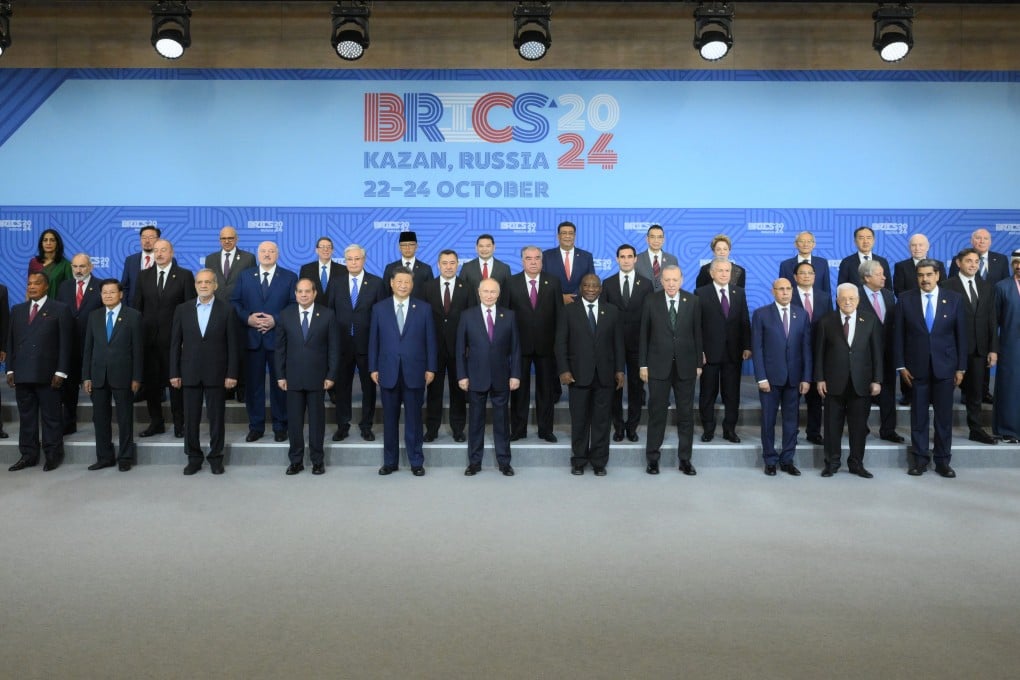Editorial | Greater cooperation by Brics nations to benefit global stability
As more countries join bloc, President Xi Jinping is urging members to take green, low-carbon route and practise ‘true multilateralism’

The annual summit of the Brics group of nations welcomed five new full members last week, doubling membership to 10.
It underlined the growing challenge to the Western-led world order from emerging nations, with 13 more invited to become “partner countries”, and Russian President Vladimir Putin revealing that more than 30 others had expressed an interest in joining.
Brics, named after the founding members Brazil, Russia, India and China plus South Africa, now covers more than 40 per cent of the world’s population after Egypt, Ethiopia, Iran, Saudi Arabia and the United Arab Emirates joined.
The expanded membership found common ground at the summit in the Russian city of Kazan on a range of global issues, with the exception of Russia’s proposal to delink the world’s financial system from the US dollar. Few members are ready to embrace an alternative to a currency that remains deeply entrenched globally.
At his keynote summit speech, President Xi Jinping spoke out against stalled reform of international governance, and outlined an agenda for a new world order including an international financial system that better reflects changes in the global economic landscape.
China, which accounts for around 17 per cent of the world’s gross domestic product and contributes some 30 per cent of global growth, is under-represented in key institutions.

